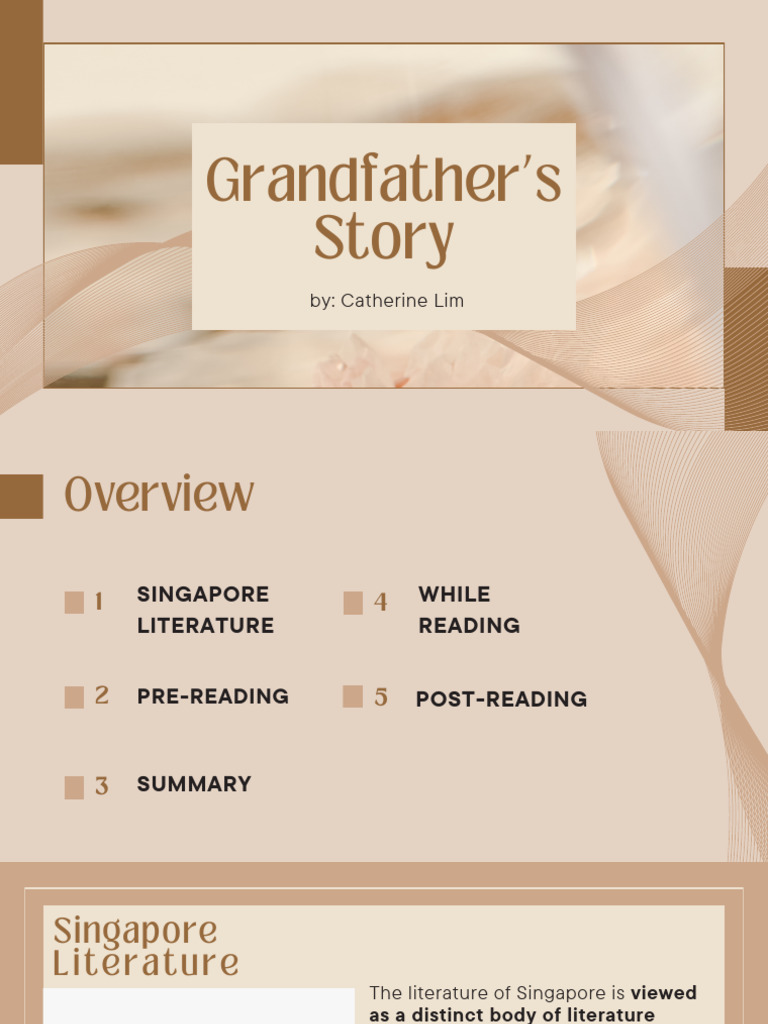In the intricate tapestry of Bahá’í teachings, stories often serve as a pivotal medium for imparting profound lessons and evoking the principles of unity, equality, and service. One particularly evocative narrative emerges from the recounting of memories related to a lineage steeped in the experience of servitude. Titled “A Grandfather’s Story: Memories of My Slave Grandfather,” this narrative blends personal history with broader philosophical reflections. It accentuates the significance of storytelling as a tool for understanding Bahá’í principles, while simultaneously posing a poignant question: how can the past, marked by oppression and resilience, illuminate our path toward collective spiritual evolution today?
From the outset, the narrative invites readers to ponder the weight of heritage. The reminiscences of a grandfather, once shackled by the chains of slavery, become a vehicle for exploring the duality of suffering and triumph. Just as the Grandfather’s story unfolds, it can be observed that the experiences of those who endured unimaginable hardship also foster a profound appreciation for freedom and dignity—principles that are foundational within the Bahá’í faith. This interplay between past injustices and present aspirations incites a reflective awareness of how societal progress aligns with spiritual development.
As the story progresses, the themes of unity and interconnectedness emerge. The Bahá’í teachings emphasize that humanity is but a single soul in various forms, which resonates through the lineage tales of those who suffered as slaves. This narrative transcends personal experience and invites reflections on the collective identity of humankind. The experiences of the Grandfather symbolize not merely individual pain, but interconnected struggles across history. Thus, the challenge arises: can we regard atrocities of the past as a profound yet painful reminder to foster a world convened on unity, compassion, and social justice?
Moreover, through the lens of the Bahá’í perspective, one is beckoned to consider how personal stories forge connections that extend beyond individual identity. As these tales are shared, they interlace with community narratives—ever deepening the tapestry of understanding that binds us all. Within this context, the teachings advocate for the transformative potential of storytelling. Just as the Grandfather’s recollections impart wisdom, so too can our own narratives serve as instruments of healing and reconciliation. The challenge lies in not only safeguarding these stories but also ensuring they stimulate discourse that drives innovation and understanding in endeavors for social change.
The resilience encapsulated in the Grandfather’s journey presents another vital theme: perseverance in the face of adversity. Bahá’í teachings commend the spirit of fortitude; the narrative exemplifies how individuals can triumph over their circumstances, thereby embodying the very essence of personal development. This fortitude invites contemporary readers to contemplate the adversities they encounter and inspires them to pursue their goals despite setbacks. The question emerges: how does one cultivate such perseverance within themselves and their communities in today’s world saturated with challenges?
As the characters evolve under the shadow of historical injustices, the importance of education and enlightenment surfaces as a core Bahá’í tenet. The Grandfather’s experiences and eventual triumph serve as an allegory for the illumination that knowledge provides. Education, framed as a lifelong endeavor, enhances one’s ability to contribute meaningfully to society, transcending the limitations of one’s background. This visual of enlightenment fosters an understanding that every individual harbors the potential for growth and contribution, regardless of past tribulations. It begs the question: how can communities better foster environments that promote relentless curiosity and active learning?
Consequently, the value of service emerges as a call to action. Throughout the narrative, the Grandfather’s life serves not only as a testament to resilience but also as an aesthetic reminder of one’s obligation to serve others. The Bahá’í teachings emphasize that true fulfillment arises through acts of service to humanity. This generative exchange of kindness and generosity cultivates a sense of belonging that is critical for personal and societal wellness. The challenge accompanying this concept is to conceptualize what service looks like in a modern context, especially in a world marked by disparity and division.
Drawing reflections from the Grandfather’s narrative, one must also consider the role of diversity in the quest for universal peace—a hallmark of Bahá’í ideology. Each story unfolds a unique perspective shaped by examining various cultures and backgrounds. By fostering an appreciation for diversity, we intimately understand the individual experiences that collectively inform our global narrative. The challenge presented here is to strive for inclusive dialogues that embrace such diversity while working towards the goal of unity.
Ultimately, as the narrative of “A Grandfather’s Story” resonates through the principles of the Bahá’í faith, the reader is invited to engage with a multitude of existential questions: How do we honor the legacies we inherit? How can we transform the recollections of the past into actionable insights for future growth? How do we ensure that the lessons of history inform our present and pave the way for a more just and compassionate world?
The complexity of these questions reinforces the vital role of narratives in shaping human character and societal evolution. The Grandfather’s story, emblematic of endurance and wisdom, ultimately enriches our understanding of spirituality’s intertwining with personal and collective histories. While history may bear the scars of suffering, it can also illuminate pathways toward collective enlightenment and peace—aligning harmoniously with the central tenets of the Bahá’í faith that beckon humanity to foster unity, embrace equality, and serve the greater good.
